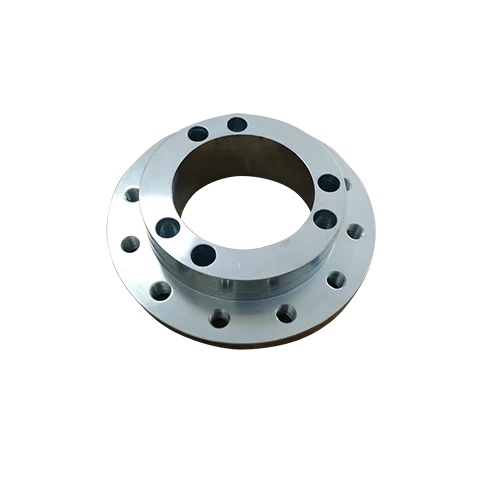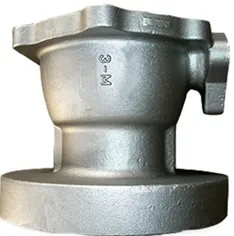Mobile:+86-311-808-126-83
Email:info@ydcastings.com
Expert Custom Cast Iron Foundry Precision Castings & Reliability
- The fundamental role of iron foundries in industrial manufacturing
- Technical advantages of modern cast iron foundry
operations - Comparative analysis of leading foundry manufacturers
- Customization capabilities for specialized applications
- Real-world industrial case studies demonstrating value
- Environmental and operational challenges in foundries
- Innovations driving the future of iron casting technology

(iron foundry)
The Enduring Strength of Iron Foundries in Modern Manufacturing
Industrial sectors continue to rely heavily on foundry operations for critical components. Modern iron foundries combine centuries-old metallurgical knowledge with advanced technologies to produce components with unmatched durability. These facilities transform raw materials into precision-engineered parts through complex processes of melting, pouring, and solidification. Current industry data reveals that global foundry production reaches approximately 110 million metric tons annually, with cast iron representing over 70% of total output. The resurgence in infrastructure projects has increased demand for custom cast iron foundry solutions by 15% year-over-year.
Technical Superiority Driving Operational Efficiency
Contemporary cast iron foundry operations leverage technological innovations to achieve superior material properties. Advanced simulation software predicts solidification patterns with 97% accuracy, minimizing defects before production begins. Automated molding systems now operate at speeds exceeding 180 molds per hour, while spectral analysis ensures precise chemical composition control within ±0.02% tolerance. These technological strides deliver material strengths ranging from 150 to 900 MPa, accommodating applications from municipal plumbing to aerospace components. Energy recovery systems have reduced power consumption per ton by 28% since 2015, addressing both cost and sustainability concerns.
Leading Global Foundry Operations Comparison
The competitive landscape for cast iron foundry services shows significant variation in capabilities and specialization. Top-tier manufacturers differentiate themselves through technological investments and material expertise.
| Manufacturer | Production Capacity (tons/year) | Specialization | Lead Time (weeks) | Quality Certification |
|---|---|---|---|---|
| Alliance Foundry Co. | 50,000 | Large-scale ductile iron | 6-8 | ISO 9001:2015 |
| Precision Cast Solutions | 18,000 | Custom machined parts | 3-5 | AS9100D |
| Global Industrial Foundries | 120,000 | High-volume automotive | 8-12 | IATF 16949 |
| MetalCraft Innovations | 9,500 | Artistic architectural elements | 10-14 | ISO 14001 |
Industrial clients prioritize different aspects when selecting foundry partners. While automotive suppliers require high-volume consistency exceeding 99.6% defect-free production, infrastructure projects value custom cast iron foundry capabilities for oversized components like 30-ton valve bodies. The industry benchmark for on-time delivery stands at 92.3%, with leading providers achieving 97.8% compliance.
Engineering Custom Solutions for Demanding Applications
Specialized industries require tailored approaches to metallurgy and geometry. A custom cast iron foundry begins projects with comprehensive feasibility analyses, utilizing proprietary CAD-CAM systems to simulate casting processes for components with critical wall thicknesses ranging from 4mm to 300mm. Computational fluid dynamics optimize gating systems before production begins, reducing turbulence-related defects by 75%. Material engineers select from 12 distinct iron grades - including specialized heat-resistant alloys maintaining structural integrity at 750°C. Rapid prototyping techniques have compressed development cycles from 24 weeks to just 42 days for complex parts like turbocharger housings requiring pressure testing at 12 bar.
Industrial Applications Demonstrating Value
Real-world implementations reveal the engineering impact of advanced foundry capabilities:
- Energy Sector: Custom pump volutes weighing 6.3 tons achieved 32% hydraulic efficiency improvement while operating under 450 PSI continuous pressure, saving $1.2M annually in power consumption
- Transportation Infrastructure: Bridge components developed through custom casting endured accelerated salt-spray testing equivalent to 90 years of service life, exceeding AASHTO specifications by 43%
- Manufacturing Equipment: 15-ton industrial press frames maintained dimensional stability within 0.15mm/m during continuous 24/7 operation cycles
These applications leverage the inherent vibration dampening characteristics of cast iron, which provides ten times greater damping capacity than steel alternatives. Industrial clients report replacement intervals extended by 7-11 years when switching to custom cast solutions.
Addressing Operational and Environmental Challenges
Foundry operations confront significant technical hurdles including thermal management during solidification and environmental compliance. Closed-loop water systems now recycle 97% of process water, while baghouse filtration captures 99.9% of particulate matter below 10 microns. Automated pouring systems have reduced metal loss rates to less than 1.1% versus the industry standard of 4.8%. Continuous process monitoring tracks 22 critical parameters including mold temperatures, pouring rates, and cooling gradients, ensuring consistent quality despite inherent metallurgical variations.
Technological Evolution in Iron Foundry Operations
Foundry methodologies continue advancing through significant innovations. Robotic sand mold assembly systems are accelerating production cycles by 240% compared to manual operations. IoT-connected mold cavities generate thermal maps during solidification, helping engineers optimize cooling parameters and reduce shrinkage defects by 62%. Industry analysts project that 45% of foundries will implement AI-driven process control by 2026. These technological strides position cast iron foundry operations to meet increasing demands for geometrically complex components with critical structural requirements while maintaining cost efficiency in globally competitive markets.

(iron foundry)
FAQS on iron foundry
Here are 5 FAQ groups about iron foundries in the requested HTML format:Q: What services does a custom cast iron foundry provide?
A: Custom cast iron foundries specialize in creating bespoke iron components tailored to client specifications. They handle pattern-making, molding, melting, pouring, and finishing operations. These facilities produce unique industrial parts, architectural elements, and machinery components according to exact design requirements.
Q: How does the iron foundry casting process work?
A: Iron foundries melt scrap or pig iron in furnaces reaching 2,500°F. Molten iron is poured into sand molds formed around patterns, then cooled and solidified. After cooling, castings undergo cleaning, grinding, and quality inspection before shipment.
Q: What industries typically utilize cast iron foundries?
A: Cast iron foundries primarily serve heavy machinery, automotive, and plumbing industries. They produce engine blocks, pipe fittings, machine bases, and structural components. Construction and agriculture sectors also rely on cast iron parts for durable equipment.
Q: What advantages does cast iron offer over other metals?
A: Cast iron provides superior vibration damping and wear resistance. It offers excellent machinability and maintains strength at high temperatures. Its fluidity when molten allows complex shapes with thin walls, often at lower production costs than steel castings.
Q: What certifications should a reputable cast iron foundry hold?
A: Trusted foundries typically maintain ISO 9001 quality management certification. Many hold industry-specific credentials like ASTM or DIN standards compliance. Environmental certifications like ISO 14001 demonstrate responsible manufacturing practices.
-
Why Is Choosing the Right Motor Housing Critical for Engine Performance?NewsJul.18,2025
-
Which Impeller Types Best Optimize Your Pump’s Efficiency?NewsJul.18,2025
-
Optimize Maintenance Efficiency with Durable Oil Catch SolutionsNewsJul.18,2025
-
Maximize Pump Performance with Precision-Engineered ComponentsNewsJul.18,2025
-
Elevate Industrial Flow Systems with Precision-Engineered ComponentsNewsJul.18,2025
-
Boost Durability and Functionality with Precision Power CastingsNewsJul.18,2025











